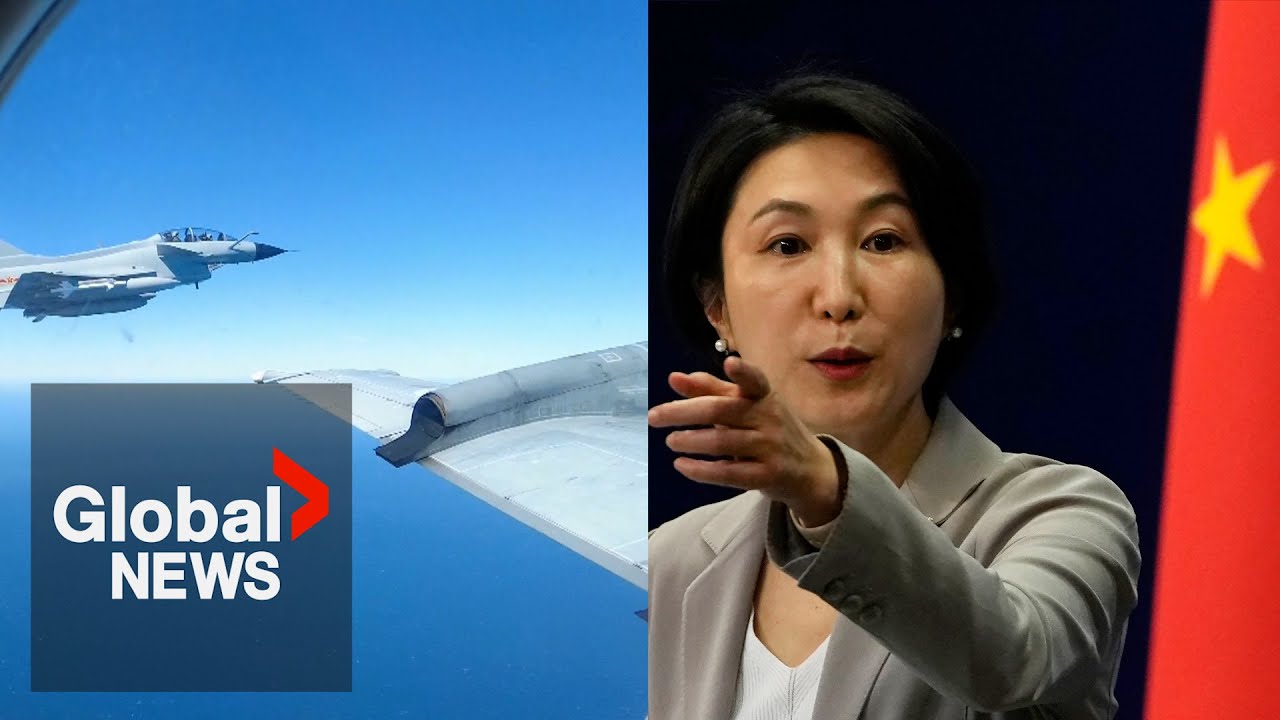
NGOCSTIP – China has drawn global attention after intercepting a Canadian maritime patrol aircraft over the East China Sea. The incident involved the Royal Canadian Air Force CP-140 Aurora, which was participating in Operation NEON, a multinational mission to enforce United Nations sanctions against North Korea. The aircraft was conducting surveillance over international waters when Chinese fighter jets approached it on several occasions. According to reports, one Chinese supersonic jet closed in and hailed the Canadian crew, prompting the captain to respond that the plane was operating legally under international airspace. Hours later, another Chinese fighter armed with missiles approached within two hundred feet of the Canadian aircraft. The encounter highlighted escalating regional tensions and raised fresh concerns about Beijing’s increasingly assertive posture in disputed skies near the Korean Peninsula and Japan.
The aggressive interception by China’s military reignited debates about Beijing’s expanding influence across the East Asia region. The Canadian aircraft conducted a lawful mission, observing ships suspected of violating UN sanctions on North Korea’s nuclear program. China’s close maneuvers against the CP-140 Aurora at such short range appeared as a deliberate show of strength. Reports stated the Chinese pilot shadowed the Aurora for over thirty minutes before another armed jet arrived. These actions demonstrated China’s ongoing defense of Pyongyang’s interests amid rising international concern. Analysts fear Beijing may be protecting North Korea from global oversight through these repeated interceptions. By targeting the Canadian aircraft, China displayed its ambition to expand territorial control and regional authority. The interception also showed China’s readiness to confront foreign operations threatening its strategic ties with North Korea.
“Read about: BREAKING: Secret Israel-Hamas Meeting in Egypt Could Decide Fate of Gaza and Hostages!”
Despite the risky aerial maneuvers by Chinese fighter jets, the Canadian crew aboard the CP-140 Aurora maintained calm professionalism throughout the encounter. The mission was part of a long-term intelligence operation designed to identify vessels suspected of transporting prohibited materials to or from North Korea. Canada’s involvement in Operation NEON reflects its commitment to global security and the enforcement of UN mandates. Officials confirmed that the Aurora captured photo and video evidence of suspicious maritime activities before returning safely to Kadena Air Base in Okinawa, Japan. The Canadian Armed Forces emphasized their dedication to ensuring freedom of navigation and monitoring compliance with international law. Brigadier General Jeff Davis reaffirmed that these missions will continue as long as they remain safe and professional. This disciplined response showcased Canada’s resilience and responsibility in maintaining international peace amid increasing aerial confrontations.
“Read more: Kirsten Dunst Reveals the 2 Secrets Behind Her 30-Year Hollywood Reign!”
The mid-air encounter adds to a growing list of confrontations between China and Western nations over international airspace and maritime rights. The United States and its allies, including Canada, Japan, and Australia, have expressed concern over China’s increasingly assertive regional behavior. Chinese aircraft often buzz and shadow Western patrol planes, flying dangerously close during their standard missions. In 2022, similar incidents happened when Chinese jets approached Canadian aircraft, some getting close enough for pilots to see each other. These actions raise serious safety concerns and have sparked numerous diplomatic complaints from involved nations. Analysts warn that continued aggression might cause miscommunication or accidents with severe global consequences. Western military experts emphasize transparency and restraint to avoid escalation in such volatile airspace. Despite these international appeals, China still defends its actions as necessary for national protection, complicating regional diplomacy further.
The recent incident between China and Canada underscores the fragile balance of power in East Asia. With North Korea continuing its nuclear ambitions and ballistic missile tests, nations in the region remain on high alert. Operation NEON, supported by several US allies, aims to monitor and deter illegal trade benefiting Pyongyang’s weapons program. However, China’s interference in these missions has raised questions about its true stance on global sanctions enforcement. Analysts suggest that Beijing’s behavior may reflect both a desire to assert dominance and to protect its ally from external scrutiny. As more countries contribute to the operation, the risk of confrontations at sea and in the air grows higher. For now, both Canadian and allied forces appear determined to proceed with their missions, emphasizing the need for stability and international cooperation to prevent future conflicts in these contested skies.
This article is sourced from www.newsweek.com and for more details you can read at ngocstip
Writer: Sarah Azhari
Editor: Anisa